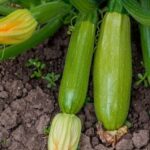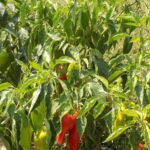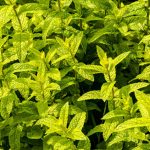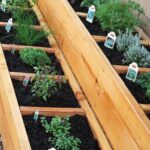Are you a gardening enthusiast in North Carolina’s Asheville looking to maximize the potential of your vegetable garden? Look no further. This article serves as your ultimate guide to successful vegetable gardening in Asheville, NC.
Whether you’re a seasoned gardener or just starting out, understanding the specific climate and soil of Asheville is crucial for a thriving harvest. From planning and planting to dealing with common pests and diseases, we’ve got you covered with expert tips and local success stories.
Asheville’s unique climate and soil composition create an ideal environment for vegetable gardening, but it’s important to understand how these factors impact the success of your garden. By selecting the right vegetables for Asheville’s climate and planning according to the seasonal gardening calendar provided in this article, you can ensure a bountiful harvest year-round. Additionally, we’ll explore community resources and events tailored for vegetable gardeners in Asheville, along with valuable insights from local experts.
Join us on a journey exploring the beauty of vegetable gardening in North Carolina’s Asheville as we delve into the nitty-gritty details of maintaining a healthy and thriving garden. Whether you’re seeking advice on pest management or inspiration from fellow local gardeners’ success stories, this comprehensive guide will equip you with all the knowledge you need to enjoy a fruitful veggie patch in Asheville.
Understanding the Climate and Soil in Asheville for Successful Vegetable Gardening
When it comes to successful vegetable gardening in Asheville, NC, understanding the climate and soil is crucial. The Appalachian Mountains play a significant role in shaping Asheville’s climate, resulting in mild winters and comfortably warm summers. The average annual temperature in Asheville is around 58°F, with an average precipitation of 45 inches. Additionally, Asheville experiences a humid subtropical climate which influences the types of vegetables that thrive in the area.
The soil composition in Asheville varies from place to place but generally consists of clay and loamy soils. It is essential to understand the pH levels and nutrient content of the soil to determine which vegetables will grow best. Testing the soil for pH levels can help determine if it needs any adjustments before planting.
To ensure successful vegetable gardening, it is important to consider vegetables that are well-suited for Asheville’s climate and soil conditions. Here are some popular vegetables that can thrive in Asheville:
- Tomatoes
- Peppers
- Squash
- Green Beans
- Cucumbers
In addition to selecting the right vegetables, gardeners should also consider crop rotation and companion planting strategies to optimize their garden’s productivity.
Understanding the local climate and soil conditions in Asheville is crucial for a successful vegetable garden. By choosing suitable vegetables and adapting gardening techniques to these conditions, gardeners can maximize their harvests while nurturing a thriving garden throughout the year.
Planning Your Vegetable Garden
When planning your vegetable garden in Asheville, it’s essential to consider the climate and soil conditions that are specific to this region. Asheville has a humid subtropical climate, characterized by hot summers and mild winters with moderate rainfall throughout the year. The soil in Asheville is generally well-drained with a slightly acidic pH, making it suitable for a variety of vegetables.
To ensure a successful vegetable garden in Asheville, it’s crucial to select vegetables that are well-suited for this particular climate. Some of the best vegetables to consider planting in Asheville include tomatoes, peppers, cucumbers, squash, lettuce, kale, broccoli, and carrots. These vegetables thrive in the warm summers and mild winters of Asheville, making them ideal choices for your garden.
Recommended Vegetables for Asheville’s Climate
- Tomatoes
- Peppers
- Cucumbers
- Squash
- Lettuce
- Kale
- Broccoli
- Carrots
It’s also important to consider the length of the growing season in Asheville when selecting vegetables for your garden. With a relatively long growing season from early spring to late fall, there is ample opportunity to plant multiple crops throughout the year. Additionally, you should consider the microclimates within your garden space and select vegetables that are best suited for each specific area based on factors such as sunlight exposure and soil moisture levels.
Ultimately, by carefully selecting the right vegetables for Asheville’s climate and growing conditions, you can set yourself up for a bountiful harvest and a successful vegetable garden. Taking into account these factors will help you make informed decisions when planning your garden layout and choosing which vegetables to grow.
Seasonal Gardening Calendar
Asheville, North Carolina is a great place for vegetable gardening, with its long growing season and mild climate. To ensure successful vegetable gardening in Asheville, it is important to follow a seasonal gardening calendar. This calendar will help you determine the best times to plant, harvest, and care for your vegetables throughout the year.
In Asheville, the best time to start planting cool-season vegetables such as lettuce, carrots, and broccoli is in early spring when the soil temperature reaches around 45-50°F. These vegetables can also be planted again in late summer for a fall harvest. On the other hand, warm-season vegetables like tomatoes, peppers, and cucumbers should be planted after the last frost date which typically occurs in mid-April in Asheville.
When it comes to harvesting your vegetables in Asheville, timing is crucial. For example, summer squash and green beans are usually ready for harvest about 50-60 days after planting, while certain varieties of tomatoes may take 70-80 days to mature. Additionally, proper care for your vegetables such as watering, fertilizing, weeding, and pest control should be done regularly throughout the growing season to ensure a bountiful harvest.
| Vegetable | Best Time to Plant | Best Time to Harvest |
|---|---|---|
| Lettuce | Early Spring or Late Summer | 30-60 days after planting |
| Zucchini | After Last Frost Date (mid-April) | 40-50 days after planting |
By following the seasonal gardening calendar for Asheville and keeping track of important planting and harvesting dates for various vegetables, you can maximize the productivity of your garden and enjoy a variety of freshly grown produce throughout the year.
Tips for Maintaining a Healthy and Thriving Vegetable Garden in Asheville, NC
Maintaining a healthy and thriving vegetable garden in Asheville, NC requires ongoing care and attention throughout the growing season. To ensure the success of your garden, it’s essential to stay on top of regular maintenance tasks such as watering, weeding, and fertilizing. Additionally, practicing good gardening techniques and utilizing natural pest control methods can help promote the overall health of your vegetable plants.
One key aspect of maintaining a healthy vegetable garden in Asheville is proper watering. The climate in Asheville can vary, so it’s important to monitor the moisture levels in the soil and adjust your watering schedule accordingly. In general, vegetables need about 1-2 inches of water per week, either from rainfall or irrigation. It’s best to water deeply and less frequently to encourage strong root growth and prevent issues such as rot or disease.
Weeding is another crucial task for keeping your Asheville vegetable garden healthy. Weeds compete with your vegetable plants for nutrients and water, so regularly removing them can help prevent stunted growth and poor yields. Consider using mulch to suppress weed growth and retain soil moisture, making it easier to maintain a weed-free garden.
In addition to watering and weeding, fertilizing is an essential part of maintaining a healthy vegetable garden in Asheville. Conducting a soil test can help you determine the specific nutrient needs of your garden, allowing you to apply fertilizer strategically. Organic options such as compost or well-decomposed manure are excellent choices for providing a slow release of nutrients to your plants while also improving soil structure over time.
| Vegetable Gardening Task | Tips |
|---|---|
| Watering | Monitor moisture levels; Water deeply and less frequently |
| Weeding | Regularly remove weeds; Use mulch for suppression |
| Fertilizing | Conduct soil test; Use organic options like compost or manure |
Dealing With Common Pests and Diseases in Asheville’s Vegetable Gardens
Identifying Common Pests and Diseases
Asheville, NC is not immune to the pests and diseases that can plague vegetable gardens. Some common pests to look out for in the area include aphids, cabbage worms, and slugs. Additionally, fungal diseases such as powdery mildew and downy mildew can be a concern for vegetable gardeners in this region. It is important for gardeners to be vigilant in monitoring their plants for any signs of infestation or disease so that they can take immediate action.
Preventative Measures
Preventing pest infestations and diseases from taking hold in your garden is crucial for a successful harvest. One effective method is to practice crop rotation, which involves planting different types of vegetables in different areas each year to help prevent the buildup of pests and diseases in the soil.
Additionally, using mulch can help with moisture retention while also acting as a barrier against certain pests. For those concerned about fungal diseases, it’s important to water the soil directly rather than the leaves of plants, as damp foliage can promote fungus growth.
Natural Remedies and Chemical Control
When encountering pest or disease issues in your Asheville vegetable garden, it’s crucial to consider environmentally-friendly remedies. For example, introducing beneficial insects such as ladybugs or lacewings can help control aphid populations without the need for chemical pesticides.
There are also organic sprays available that can help combat both pests and diseases without harming the environment or beneficial insects. However, if a situation calls for chemical control methods, it’s essential to use them sparingly and according to label instructions to minimize negative impacts on the environment.
By being proactive and utilizing preventative measures along with considering natural remedies when addressing common pests and diseases in Asheville’s vegetable gardens, gardeners can increase their chances of maintaining a healthy and thriving garden throughout the growing season.
Community Resources and Events for Vegetable Gardeners in Asheville
Asheville, North Carolina is a vibrant and bustling community with a strong interest in vegetable gardening. There are numerous resources and events available to support and connect local gardeners in Asheville. Whether you are a beginner or an experienced gardener, these community resources and events can provide valuable knowledge, tips, and networking opportunities.
Local Garden Centers and Nurseries
Asheville is home to several garden centers and nurseries that offer a wide variety of vegetable plants, seeds, and gardening supplies. These establishments often provide workshops, classes, and demonstrations on topics such as soil preparation, plant care, and pest management. Additionally, the staff at these local businesses are usually knowledgeable about the specific needs of vegetable gardening in the Asheville area.
Community Gardens
For those who may not have access to suitable gardening space at home, community gardens are an excellent option. These shared gardening spaces allow individuals to rent a plot of land for cultivating their own vegetables. Many community gardens also host educational events and workdays where members can learn from each other and collaborate on garden maintenance.
Local Events and Workshops
Throughout the year, Asheville hosts various events and workshops specifically tailored for vegetable gardeners. These may include lectures from horticulture experts, hands-on demonstrations, seed swaps, or even guided tours of successful local vegetable gardens. A great way to stay informed about upcoming events is by joining local gardening groups or following relevant social media pages.
By taking advantage of these resources and events in Asheville, vegetable gardeners can expand their knowledge base, connect with fellow enthusiasts, and ultimately enhance the success of their gardens. Whether you’re looking for practical advice or simply want to share your passion with like-minded individuals, the supportive community in Asheville has much to offer for vegetable gardening aficionados.
Success Stories
Asheville, North Carolina is a fantastic place for vegetable gardening, with its beautiful climate and rich soil. By understanding the local climate and soil, you can plan and select the right vegetables for a successful harvest.
The seasonal gardening calendar provides valuable information on the best times to plant, harvest, and care for vegetables in Asheville throughout the year. With detailed tips for maintaining a healthy garden, dealing with pests and diseases, and accessing community resources and events, local vegetable gardeners in Asheville have everything they need to thrive.
Whether you are an experienced gardener or just starting out, learning from success stories of local Asheville vegetable gardeners can provide valuable insights and inspiration. Hearing about their experiences and tips can be both educational and motivational as you embark on your own gardening journey. From innovative planting techniques to tried-and-true methods for pest control, these success stories offer a wealth of knowledge that can benefit anyone cultivating a vegetable garden in Asheville, NC.
In conclusion, the vibrant community of vegetable gardeners in Asheville is a testament to the city’s enthusiasm for sustainable living and locally sourced produce. By utilizing the resources available and learning from seasoned gardeners’ experiences, anyone can enjoy a bountiful harvest in their own backyard. So roll up your sleeves, gather your gardening tools, and get ready to sow the seeds of a fruitful vegetable garden in beautiful Asheville.
Frequently Asked Questions
When Should I Start My Vegetable Garden in NC?
In NC, the best time to start your vegetable garden is in the early spring, around March or April. This allows you to take advantage of the warmer weather and longer days to help your vegetables grow.
Can You Grow Vegetables Year Round in North Carolina?
While North Carolina has a relatively mild climate, it can still experience frost and freezing temperatures in the winter. However, with some planning and the use of cold frames or row covers, it is possible to grow certain cold-hardy vegetables year-round in the state.
Which Month Is Best for Vegetable Garden?
The best month for starting a vegetable garden in North Carolina depends on the specific vegetables you want to grow. Generally, cool-season crops like lettuce, spinach, and broccoli can be planted in late winter or early spring, while warm-season crops like tomatoes and peppers are typically planted in late spring or early summer.
It’s important to research the specific planting times for each vegetable based on your region within North Carolina.

If you’re looking to get into vegetable gardening, or are just looking for some tips on how to make your current garden better, then you’ve come to the right place! My name is Ethel and I have been gardening for years. In this blog, I’m going to share with you some of my best tips on how to create a successful vegetable garden.





